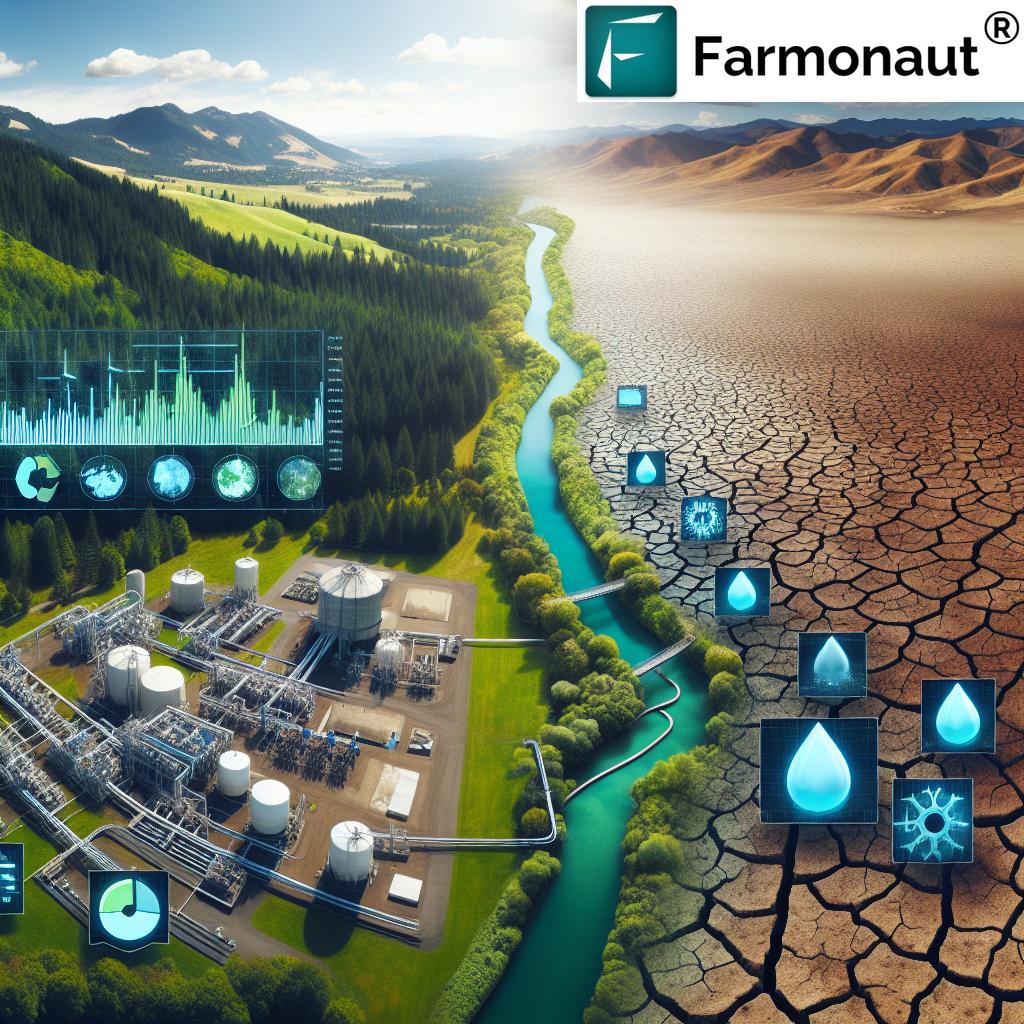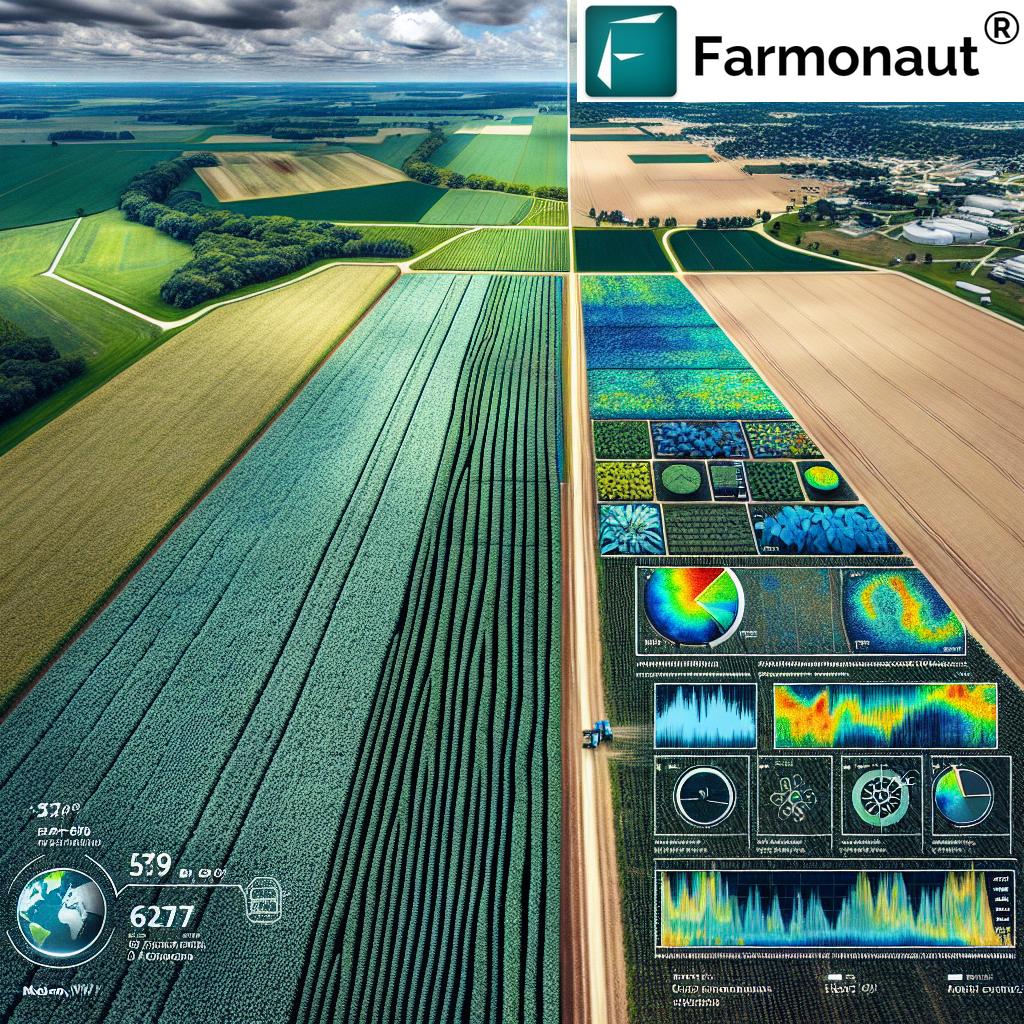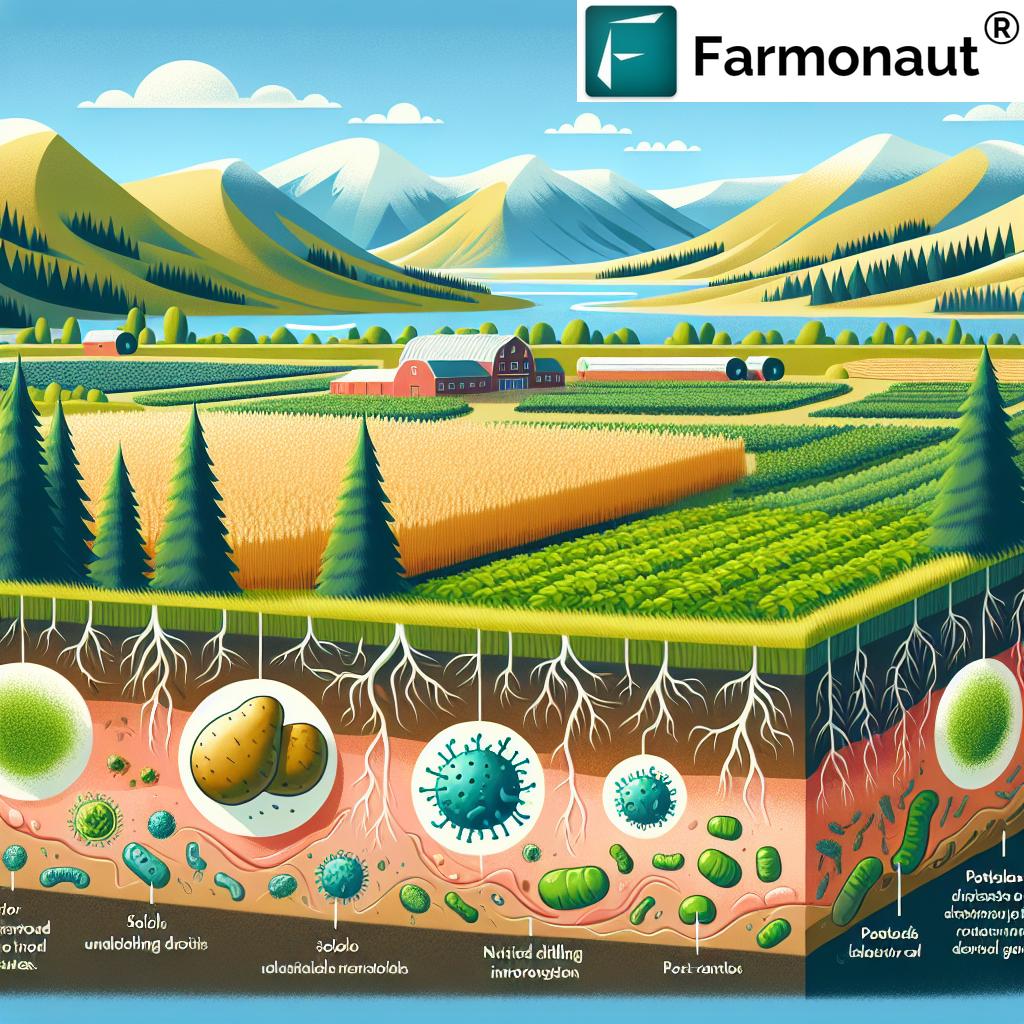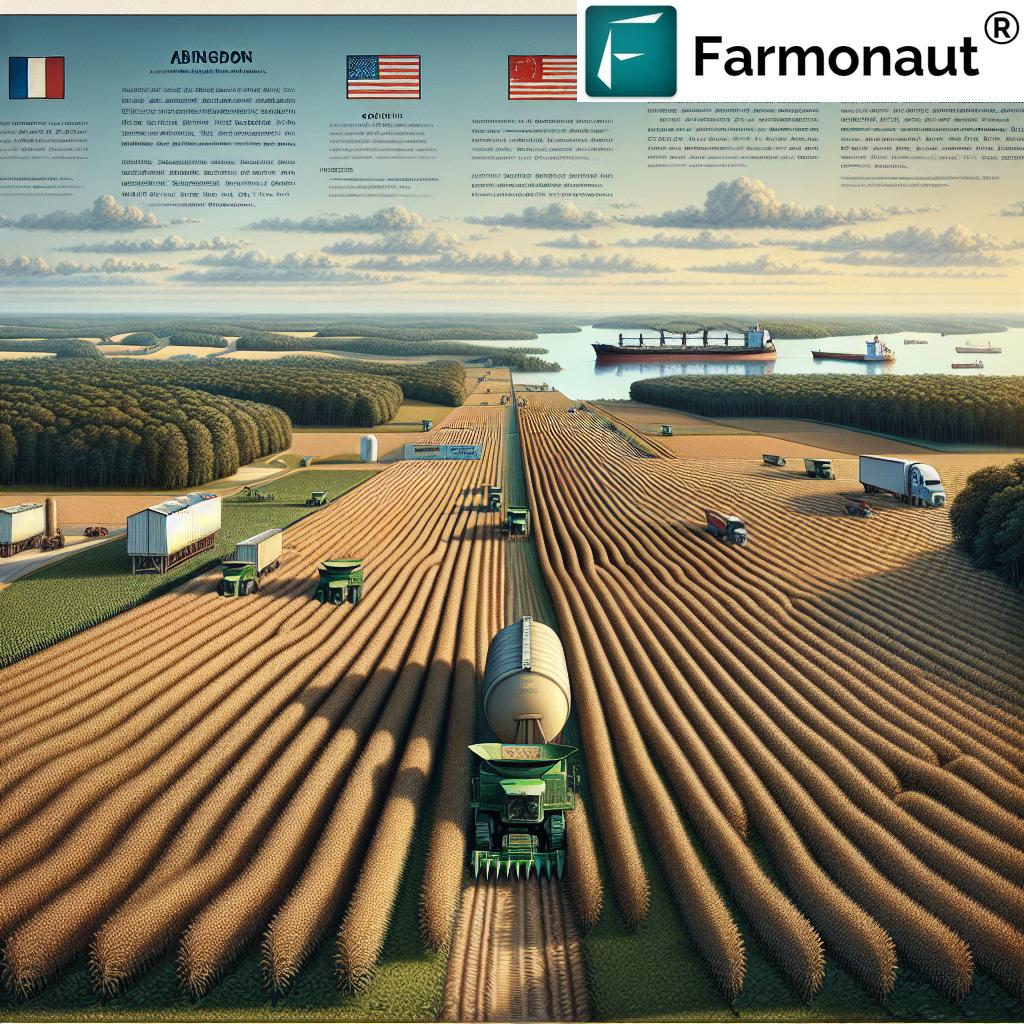Virginia Tech’s New Alexandria Innovation Campus: Revolutionizing Technology Education and Research
“Virginia Tech’s Innovation Campus in Alexandria attracted over 1,000 attendees at its celebration, highlighting its significant impact.”
We are thrilled to announce a groundbreaking development in the landscape of technology education and research in the United States. Virginia Tech‘s new Innovation Campus in Alexandria has officially opened its doors, marking a significant milestone in the advancement of technology education and innovation. This state-of-the-art academic facility represents a pivotal expansion in the nation’s commitment to fostering cutting-edge research and education in the fields of computer science, engineering, and business.
As we delve into the details of this revolutionary campus, we’ll explore how it’s set to transform the future of technology education and contribute to the United States’ competitive edge in the global tech arena. Let’s embark on this exciting journey to understand the impact and potential of Virginia Tech’s newest addition to the world of innovation.
A New Era of Technology Education
The Virginia Tech Innovation Campus in Alexandria is not just another academic building; it’s a testament to the university’s commitment to meeting the evolving needs of the technology sector and the federal workforce. This cutting-edge institution aims to bridge the gap between academia and industry, fostering technological advancements that will shape our future.

The campus will offer graduate programs in three key areas:
- Computer Science
- Computer Engineering
- Business
These programs are designed with a special focus on project-based AI research in the DMV (DC, Maryland, Virginia) area, positioning the campus at the forefront of technology innovation education.
The Vision Behind the Innovation Campus
The concept of the Virginia Tech Innovation Campus embodies the idea of an engaged university – one that meets community needs and seeks solutions that make a real-world impact. This vision was eloquently expressed by Virginia Tech President Tim Sands, who stated:
“This is the new manifestation of an engaged university — meeting people where they live and work to understand their needs and seek solutions that make a difference.”
This statement encapsulates the core philosophy driving the Innovation Campus: to create a dynamic environment where academic research and real-world application converge to address pressing technological challenges.
A Hub for Advanced Research and Innovation
At the heart of the Innovation Campus lies its commitment to advanced research and innovation. The focus on AI research in the DMV area is particularly noteworthy, as it positions Virginia Tech at the epicenter of one of the most rapidly evolving fields in technology.
“The new campus will offer graduate programs in three key areas: computer science, computer engineering, and business, focusing on AI research.”
This emphasis on AI not only aligns with current industry trends but also prepares students for the future of technology. By integrating AI research into its core curriculum, the Innovation Campus is setting a new standard for technology innovation education.
Bridging Academia and Industry
One of the most exciting aspects of the Virginia Tech Innovation Campus is its potential to bridge the gap between academia and industry. By fostering close relationships with tech companies and government agencies in the DMV area, the campus will provide students with unparalleled opportunities for real-world experience and networking.
This collaboration between academia and industry is crucial for:
- Ensuring curriculum relevance
- Providing students with internship and job opportunities
- Facilitating technology transfer from research to practical applications
- Supporting the needs of the federal workforce
Impact on the Federal Workforce
The strategic location of the Innovation Campus in Alexandria places it in close proximity to the nation’s capital, making it an ideal hub for supporting the federal workforce. This positioning allows the campus to:
- Offer specialized training programs for government employees
- Conduct research aligned with federal technology initiatives
- Provide a pipeline of skilled graduates for federal agencies
- Foster collaboration between academia, industry, and government
By addressing the unique needs of the federal sector, the Innovation Campus is poised to play a crucial role in enhancing the technological capabilities of government agencies and supporting national innovation initiatives.
Revolutionizing Computer Science and Engineering Education
The graduate programs in computer science and computer engineering at the Innovation Campus are designed to be at the cutting edge of technology education. These programs will focus on:
- Advanced algorithms and data structures
- Machine learning and artificial intelligence
- Cybersecurity and network systems
- High-performance computing
- Software engineering and development methodologies
By offering a curriculum that combines theoretical knowledge with practical application, these programs will prepare students to tackle real-world challenges in the rapidly evolving tech landscape.
Integrating Business and Technology
Recognizing the importance of business acumen in the tech world, the Innovation Campus also offers graduate programs in business with a focus on technology management. This integration of business and technology education is crucial for developing well-rounded professionals who can:
- Understand the business implications of technological innovations
- Lead technology-driven organizations
- Navigate the complexities of tech entrepreneurship
- Make informed decisions at the intersection of business and technology
This holistic approach to education ensures that graduates are not only technically proficient but also equipped with the business skills necessary to thrive in leadership roles within the tech industry.
State-of-the-Art Facilities and Resources
The Virginia Tech Innovation Campus boasts cutting-edge facilities designed to foster collaboration, innovation, and hands-on learning. Some of the key features include:
- Advanced research laboratories
- High-performance computing clusters
- Collaborative workspaces and innovation hubs
- Virtual and augmented reality studios
- Robotics and automation labs
- Data visualization centers
These state-of-the-art resources provide students and researchers with the tools they need to push the boundaries of technology and drive innovation in their respective fields.

Fostering a Culture of Innovation
At the core of the Innovation Campus is a commitment to fostering a culture of innovation. This is achieved through:
- Interdisciplinary collaboration
- Entrepreneurship programs and startup incubators
- Regular hackathons and innovation challenges
- Partnerships with industry leaders for real-world projects
- Mentorship programs connecting students with industry experts
By creating an environment that encourages creativity, risk-taking, and out-of-the-box thinking, the Innovation Campus aims to produce graduates who are not just job-ready but also prepared to be the innovators and leaders of tomorrow.
Comparison: Virginia Tech Innovation Campus vs. Traditional Technology Education
| Aspect | Virginia Tech Innovation Campus | Traditional Tech Education |
|---|---|---|
| Focus Areas | AI, Computer Science, Engineering, Business | Varied Tech Disciplines |
| Industry Collaboration | Strong partnerships with tech companies and government agencies | Limited industry connections |
| Research Emphasis | Project-based AI research in DMV area | Broader research focus |
| Program Offerings | Specialized graduate programs integrating tech and business | Separate tech and business programs |
| Community Impact | Direct engagement with local tech ecosystem and federal workforce | Limited local engagement |
Impact on Virginia’s Technology Landscape
The establishment of the Virginia Tech Innovation Campus in Alexandria is set to have a profound impact on Virginia’s technology landscape. By providing state-of-the-art education and research opportunities, this initiative promises to:
- Bolster Virginia’s position as a leader in technology innovation
- Attract top talent and tech companies to the region
- Stimulate economic growth in the technology sector
- Foster a thriving ecosystem of startups and tech entrepreneurs
- Enhance collaboration between universities, industry, and government agencies
The ripple effects of this campus will likely extend beyond Virginia, contributing to the overall strengthening of the United States’ competitive edge in the global tech arena.
Addressing the Skills Gap in Technology
One of the primary goals of the Innovation Campus is to address the growing skills gap in the technology sector. By offering specialized graduate programs tailored to industry needs, the campus aims to produce a workforce that is:
- Equipped with cutting-edge skills in AI, machine learning, and data science
- Capable of solving complex technological challenges
- Prepared for leadership roles in tech-driven organizations
- Adaptable to rapidly evolving technological landscapes
This focus on addressing the skills gap is crucial for maintaining the United States’ position as a global leader in technology and innovation.
Sustainability and Environmental Considerations
In line with Virginia Tech’s commitment to sustainability, the Innovation Campus incorporates various environmentally friendly features:
- Energy-efficient building design
- Renewable energy sources
- Green spaces and biodiversity initiatives
- Sustainable transportation options
- Waste reduction and recycling programs
These initiatives not only reduce the campus’s environmental footprint but also serve as a model for sustainable technology education and research facilities.
Future Expansion and Growth
While the opening of the Innovation Campus marks a significant milestone, it’s just the beginning of a larger vision for growth and expansion. Future plans may include:
- Additional research centers and laboratories
- Expanded program offerings in emerging technologies
- Increased capacity for student enrollment
- Enhanced partnerships with global tech companies
- Development of satellite campuses or innovation hubs
This forward-looking approach ensures that the Innovation Campus will continue to evolve and adapt to the changing needs of the technology sector and society at large.
Community Engagement and Outreach
The Virginia Tech Innovation Campus is committed to engaging with the local community and fostering a culture of innovation beyond its walls. Some of the community outreach initiatives include:
- Technology workshops and seminars for local residents
- STEM education programs for K-12 students
- Collaboration with local businesses on technology projects
- Public lectures and technology showcases
- Mentorship programs for aspiring tech entrepreneurs
These initiatives help to create a vibrant ecosystem of innovation that extends beyond the campus and into the broader community.
Global Partnerships and Collaborations
While rooted in Alexandria, the Innovation Campus has a global outlook, fostering partnerships and collaborations with international institutions and companies. These global connections provide:
- Opportunities for student and faculty exchanges
- Joint research projects with international partners
- Access to global networks of innovators and thought leaders
- Exposure to diverse perspectives and approaches to technology
By maintaining a global perspective, the Innovation Campus ensures that its students and research are relevant and impactful on a worldwide scale.
FAQ Section
Q: What programs are offered at the Virginia Tech Innovation Campus?
A: The campus offers graduate programs in computer science, computer engineering, and business, with a focus on AI research.
Q: How does the Innovation Campus support the federal workforce?
A: It provides specialized training, conducts relevant research, and produces skilled graduates for federal agencies.
Q: What makes the Innovation Campus different from traditional tech education?
A: It offers a more integrated approach, combining cutting-edge research, strong industry partnerships, and a focus on real-world application.
Q: Can local residents benefit from the Innovation Campus?
A: Yes, through community outreach programs, public lectures, and technology workshops.
Q: How does the Innovation Campus contribute to sustainability?
A: It incorporates energy-efficient design, renewable energy sources, and sustainable practices in its operations.
Conclusion
The Virginia Tech Innovation Campus in Alexandria represents a bold step forward in technology education and research. By combining cutting-edge facilities, industry partnerships, and a focus on emerging technologies like AI, this campus is poised to revolutionize how we approach technology education and innovation.
As we look to the future, the Impact of this campus will extend far beyond its physical boundaries, influencing the technology landscape of Virginia, the United States, and potentially the world. It stands as a testament to the power of innovation and the importance of investing in education and research to drive technological progress.
The Virginia Tech Innovation Campus is not just a new academic building; it’s a gateway to the future of technology, a catalyst for innovation, and a beacon of hope for those who believe in the transformative power of education and research. As it continues to grow and evolve, we can expect to see groundbreaking discoveries, innovative solutions to global challenges, and a new generation of tech leaders emerging from its halls.
As we conclude our exploration of this groundbreaking initiative, we invite you to stay tuned for future developments and to consider how you might engage with or benefit from the opportunities presented by the Virginia Tech Innovation Campus. The future of technology education and research is here, and it’s more exciting than ever.












